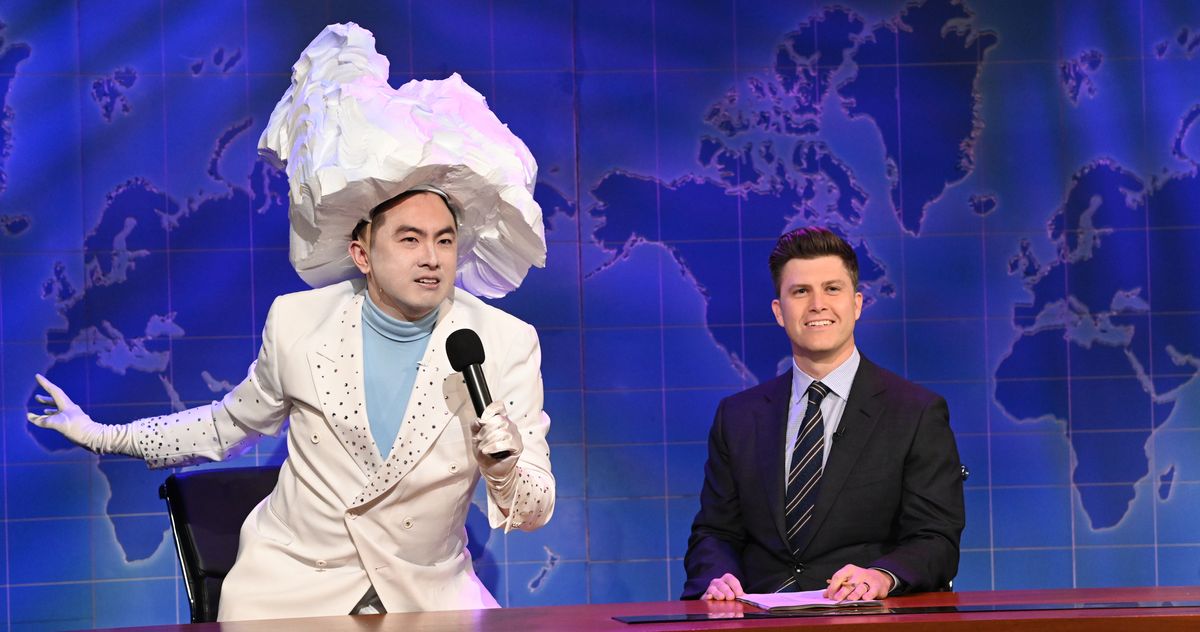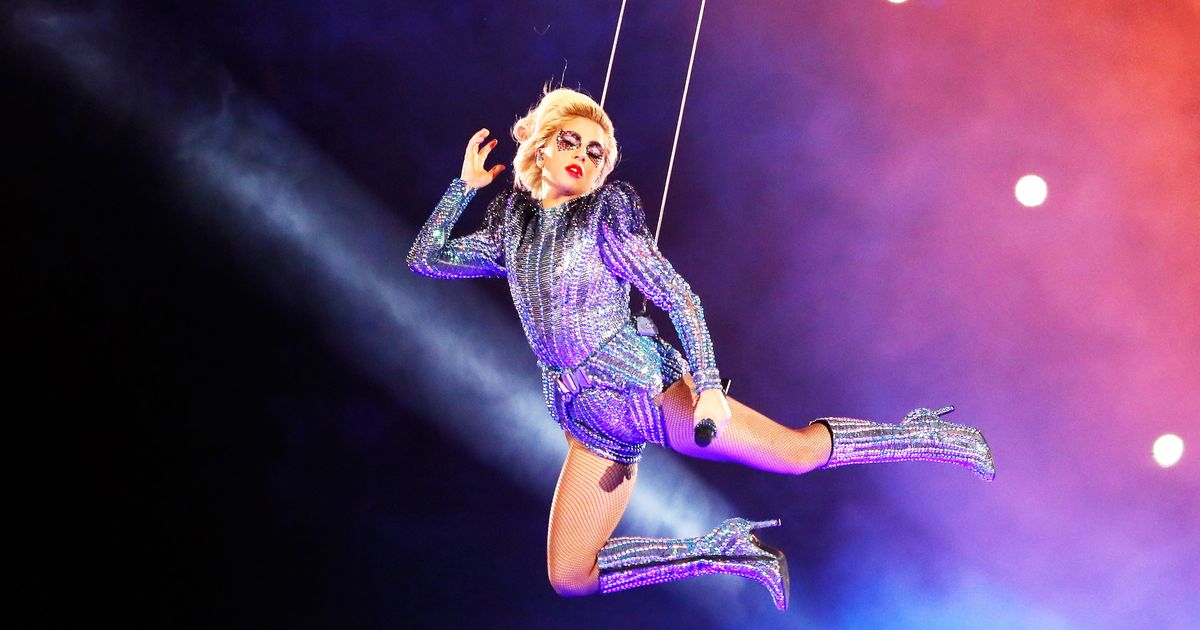Photo-Illustration: Vulture; Photos: Eurovision Song Contest via YouTube, Olly Alexander via YouTube
After Loreen’s record-equaling victory in Liverpool last year, the 2024 Eurovision Song Contest is heading to familiar territory on May 7-11. As reigning champions, Sweden are playing hosts for the seventh time and at the same venue which staged the 2013 competition, the Malmö Arena. And before a note has even been sung, the competition is already shaping up to be one of the most interesting in recent memory. There’s the return of an old powerhouse after 30 years in the wilderness, more native language entries than ever before, and unlike last year’s two-horse race, a wealth of potential winners which, as you’d expect, range from the sublime to the ridiculous. From supernatural folk-metal and Aboriginal pop to happy hardcore bangers and patriotic power ballads, here’s every contender ranked from worst to best.
Latvia has one of the worst Eurovision records in recent history, qualifying just six times over the last 20 years, with the last coming back in 2016. Had Latvia sent the Cats-on-acid novelty that finished second runner-up in the national final, their losing streak may well have come to an end. Instead, they opted for Dons, a moderately successful homegrown singer whose entry is sadly free of meowing samples and feline cosplay. It’s also sadly free of anything remotely distinctive, a generic chest-beating ballad for those who find Imagine Dragons a little too edgy.
One of several entries that has succumbed to the “Cha Cha Cha” effect, “(Nendest) narkootikumidest ei tea me (küll) midagi” is an unlikely collaboration between hip-hop outfit 5miinust and nu-folk duo Puuluup. The former may already have five number ones to their name in Estonia, but this is the Käärijä knockoff most likely to get lost in translation. Indeed, while its wordy title – the longest in Eurovision history apparently – meaning “We (sure) know nothing about (these) drugs” and deranged dad dancing might go down well at home, the rest of Europe are likely to be left scratching their heads.
Having previously competed in Georgia’s Got Talent, The Voice of Turkey, and American Idol (where she was eliminated in the first live week), Nutsa Buzaladze shouldn’t be too apprehensive about performing in front of 162 million people. She’s certainly got plenty to work with on this Frankenstein’s monster of a half-dozen different ethnopop bangers, even if none of them are particularly memorable or tuneful. “Firefighter,” which, of course, features a fire engine siren amidst all the chaos, will have to smash its staging if it’s to send Georgia to the finals for the first time since 2016.
Malta is perhaps this year’s most shameless entry, adopting the same rhythm of every basic pop anthem that’s emerged since Cyprus’ “Fuego” back in 2018, and even more blatantly, the early ‘00-style dance break which helped Israel’s “Unicorn” skyrocket up the leaderboard last year. Having previously competed in the Junior Eurovision national final and the Maltese version of The X Factor, Sarah Bonnici should have both the experience and the fire to sell “Loop” to the masses. However, the sense of déjà vu may be a little too strong to overcome.
Let’s hope the Albanian team haven’t introduced too much choreography for their Eurovision entry. Former The Voice of Albania judge Besa struggled to master the art of singing and walking at a leisurely pace in the national final, only just avoiding an embarrassing trip over her regal gold dress. Still, another on-stage mishap would make this slightly disjointed offering more interesting. “Titan” was first performed in Besa’s native tongue before being adapted into English. And there’s a sense that the song itself has been compromised, resulting in a slightly bland Sia-does-Middle Eastern pop number that, with 30 seconds to spare, suddenly pivots into the soundtrack of an ‘80s exercise VHS.
Israel’s Eurovision entry this year has come under intense scrutiny. Eden Golan was forced to significantly alter “October Rain,” its first incarnation, due to its less-than-subtle allusions to the October 2023 Hamas attacks (“There’s no air left to breathe”… “They were all good children, each one of them”). And several countries have threatened to boycott the contest in response to Israel’s participation. It’s perhaps not surprising therefore that the newly-titled “Hurricane” is as generic as they come, a Demi Lovato-esque power ballad which tries to say a lot but ends up saying nothing at all.
Although co-written by Bojan Cvjetićanin, the frontman of Slovenia’s 2023 entrant Joker Out, “Veronika” is sadly not another throwback to the glory days of indie sleaze. Raiven has tried and failed to represent her country on three previous occasions, which perhaps explains why she’s thrown everything but the kitchen sink into this attempt: operatic wails, galloping drums, and the kind of click-clacking noises that suggest 2018 winner Netta accidentally wandered into the studio. They’re all here on a dramatic ode to, what else, but the 15th century countess who became Slovenia’s first convicted witch?
Iceland avoided a political storm when hot favorite Bashar Murad, an outspoken Palestinian singer-songwriter, was unexpectedly thwarted in the national final by a much-unfancied fifty-something Europop diva. Admittedly, Hera Björk has good Eurovision form. She finished 19th back in 2010 with the glorious schlager-house of “Je Ne Sais Quoi.” “Scared of Heights,” however, sounds like a leftover track that’s been gathering dust for the last 14 years. The Nordic nation garnered a reputation in the 2010s for going distinctly leftfield. But following last year’s generic drum’n’bass offering, this is another sign they’ve lost their mojo.
Poor Germany have escaped the bottom two just once since 2014. And while this obvious attempt to echo Lewis Capaldi, Rag’n’Bone Man, or any other number of British male vocalists who sound like they desperately need a throat lozenge is by no means this year’s worst entry, don’t be surprised to see them propping up the scoreboard once more. A shock victory at the national selection, Isaak’s “Always on the Run” is indeed the most vulnerable kind of Eurovision song: perfectly serviceable but with nothing to inspire voters to pick up the phone ahead of 25 others.
Drag Race Belgique judge and self-proclaimed 21st Century Boy Mustii certainly isn’t shy, spending most of the promo for “Before the Party’s Over” in various states of undress. Disappointingly, the song itself isn’t quite as provocative. Indeed, far from the glittery electro stomper you might expect, Belgium’s entry is instead another of those sad-boy ballads that’s become an unwelcome staple of late. Mustii’s powerful vocals and that soaring climax will no doubt be catnip to juries. But with no fewer than seven hitmakers credited, it inevitably feels like a songwriting camp template.
Perennial underdogs San Marino scored the dreaded nul points in last year’s semi-final. The bar for Megara’s self-described “f*** off message,” therefore, is pretty low. The Madrid-based outfit, who twice tried to represent Spain before finding success in the microstate’s truly exhausting 129-entry national final, describe their sound as “the perfect mix between the sinister and cotton candy.” That’s a fair summary judging by “11:11,” which lurches from bubblegum metal and techno bleeps to flamenco guitars and guttural roars, while its accompanying video resembles a Warped Tour take on Airheads. The rock vote will go elsewhere, but while it won’t qualify, it should avoid the wooden spoon.
Slimane is quite the coup, having scored three number one albums since winning France’s version of The Voice back in 2016. His talent show roots are clearly evident on “Mon amour,” a chanson so quintessentially French it might as well be performed by a beret-wearing bicyclist holding a baguette. After intriguing but unsuccessful forays into Celtic electronica and chic Parisian disco, France’s musical regression is understandable if a little underwhelming. But in a field full of uptempos, a straight-forward, showboating ballad will inevitably stand out. Don’t be surprised if this places the highest of the Big Five.
Following rumors that either Aussie pop royalty Dannii Minogue or 2016 runner-up Dami Im would represent Eurovision’s geographical outliers, the reveal of lesser-known duo Electric Fields was rather anticlimactic. Still, former The X Factor contestants Zaachariaha Fielding and Michael Ross, who lost to Kate Miller-Heidke’s bonkers popera in 2019’s national final, have delivered something never heard before in the contest: lyrics in the Aboriginal language of Yankunytjatjara (albeit only two words). The unifying message of “One Milkali (One Blood)” will certainly come as relief to organizers. But its muted house-pop sound may struggle to make itself heard in a year which has completely eschewed the idea that less is more.
Electric Fields aren’t the only Aussies in this year’s contest. Born in Sydney to a Greek dancer mother and Cypriot singer father, Silia Kapsis will be flying the flag for the paternal side of her family with a rebuttal to “people who live in a fake world with a fake script.” Having broken tradition last year by sending a (shock!) man and (horror!) ballad, Cyprus have gone back to basics, sending another watered-down version of the ethnopop banger that reversed their Eurovision fortunes. Unlike Eleni Foureira’s “Fuego,” robbed of victory by Netta’s irritating novelty hit “Toy,” “Liar” is likely to get lost in the dancefloor crowd.
Having failed to qualify for last year’s final with a westernized Ed Sheeran-esque ditty, Greece have wisely decided to draw upon their own rich musical heritage. In fact, one-time Berklee College of Music student Marina Satti specifically co-wrote her entry as a celebration of Greek culture old and new. That perhaps explains why “Zari” sounds more like a collage of disparate sounds than a fully-formed song, lurching from snake-charming flutes and reggaeton beats to video game synths and operatic Middle Eastern melodies without any particular focus. File this under ‘always intriguing but highly divisive.’
Singer-songwriter Nemo performed Wham!’s “Wake Me Up Before You Go-Go” while dressed as a panda last year for Switzerland’s version of The Masked Singer and even that’s less bewildering than this Eurovision entry. Inspired by their own non-binary journey, “The Code” delivers a great message of freedom, self-identity, and acceptance. But it gets lost in a cut and shut mix of drum and bass, pop opera, Eurorap, and The Greatest Showman which may leave you reaching for the Ibuprofen. Remarkably, this is now the hot favorite to win.
Teya Dora will already be familiar to much of the TikTok generation having spawned a hugely popular meme and racked up 100 million Spotify streams with last year’s breakthrough single “Džanum.” “Ramonda,” a sobering patriotic number named after the plant which represents Serbia’s struggles during World War I, seems unlikely to inspire as many viral dances, however. Dora, a former Berklee College classmate of Charlie Puth, sings the remembrance ballad beautifully, and the crescendo’s swirling strings and tribal percussion will no doubt induce some patriotic tears. But without much universal appeal, Serbia may fail to qualify for the first time since 2017.
While too many countries to mention have taken their cues from the 2023 runner-up, Denmark is the only nation to have been inspired by the actual winner. Their entry is even named after the substance that Loreen rolled around in under what looked like a giant sandwich toaster. Described as a metaphor for losing control, “Sand” is one of those precision-tooled pop epics that the Scandinavians can nail in their sleep. And in the safe hands of musical theater actress Saba, it’s likely to score big with the juries should it progress. The televised audience, however, may feel like it’s last year’s news.
Again, Finland have crystallized everything skeptics who haven’t watched Eurovision since the ‘90s still believe about the contest. Cut from the same cloth as Käärijä’s bolero-clad recreation of The Human Centipede, “No Rules” finds Teemu Keisteri emerging from a giant denim egg, shooting pyrotechnics from his jorts, and celebrating the program which made Bill Gates a gazillionaire/conspiracy theorist’s wet dream. An ode to taking life unseriously, “No Rules” is much easier on the ear than its predecessor, however, instead mirroring the classic Eurodance brilliantly parodied last summer by Kyle Gordon. Finishing last in the national final jury, Windows95man was saved by a landslide public victory. Expect a similar scenario here.
Forget No Doubt at Coachella or Tracy Chapman at the Grammys. In the Eurovision world, the biggest comeback of 2024 undoubtedly belongs to Luxembourg. The landlocked nation used to be one of the contest’s doyens, winning a then-record five times between 1961 and 1983. But despite various fan-led campaigns, it’s been 30 years since they last graced the musical spectacle. Addressing her struggles within the industry and the persevering streak she’s acquired as a result, Tali’s “Fighter” certainly has a fitting theme. But while the adopted New Yorker should have little trouble qualifying, her formulaic, if supremely catchy, ditty is unlikely to make Luxembourg’s long-awaited return a victorious one.
“In the Middle” emerged from a chaotic national selection in which the runner-up found herself as both the accuser and the accused in allegations of vote rigging and another early entrant decided to withdraw only to later sit on the jury instead. With its operatic wails, arm choreography, and striking flurry of violins, the eventual accepted winner is similarly dramatic. And we’ve not even mentioned the staging which sits somewhere between Black Widow and the video to Robert Palmer’s “Addicted to Love.” Moldova’s fourth returnee in a row, Natalia Barbu finished tenth when she last competed back in 2007, a creditable placing unlikely to be bettered here
Talent show regular Iolanda has described her entry as a “scream of self-defense,” suggesting arthouse crowd favorites Portugal have once again opted for what the charitable would call avant-garde and others borderline unlistenable. So it’s a pleasant surprise to hear that “Grito” is a relatively straight-forward piece of fado pop. It may have trouble getting out of the semis, its melodies perhaps a little too slow-burning and subtle for a contest which thrives on immediacy. But in a year where almost every country is vying to be the loudest, this is a much-needed palate cleanser.
Now having to share their title of most successful Eurovision nation following Sweden’s seventh victory, Ireland have thrown caution to the wind this year following a national final which practically implored viewers to vote for the biggest curveball. Resembling early Lady Gaga as imagined by Tim Burton, gothic pop princess Bambie Thug is undoubtedly their most striking entrant since hand puppet Dustin the Turkey. Of course, the truly delirious “Doomsday Blue” won’t come anywhere near the top of the leaderboard. In fact, it might even struggle to qualify. But while the screamo verses will be nails-down-chalkboard to some, its pastoral folk chorus is this year’s Eurovision at its prettiest.
Nebulossa, aka singer Maria “Mery” Bas and producer Mark Dasousa, are this year’s entrant most likely to get conservatives foaming at the mouth, whether they speak Spanish or not. The retro synth-pop of “Zorra” has already whipped up controversy thanks to its provocative lyrics: the title essentially translates as ‘slut,’ but the married pair are, in fact, attempting to reappropriate the misogynistic term to both celebrate female independence and expose societal hypocrisy (“If I go out alone I’m the bitch/If I have fun, the sluttiest”). It’s another example of how there’s often substance to Eurovision’s wacky style, which in this case, is ‘mother slaying at a sex club.’
This year’s most striking trend is how many countries are embracing their own culture: see world music duo Ladaniva, aka frontwoman Jaklin Baghdasaryan and French multi-instrumentalist Louis Thomas. “Jako” is only the second ever fully Armenian-language entry, and its vibrant mix of traditional folk and national pop sound known as Rabiz doesn’t once attempt to court the Western vote. Even if most listeners won’t be aware “Jako” is a self-empowering feminist statement (“Wear this, open this, close that, behave like a girl! But I am a free girl, so I will dance and you will watch!”), its formidable energy and Baghdasaryan’s natural charisma should still have the desired effect.
Croatia haven’t reached the Top 10 since 2001, a rut that, barring an on-stage catastrophe, will be smashed apart by this year’s instant superstar. Both the artist and song name might sound like they’ve been fed through an old-school Eurovision name generator. But one-man band Baby Lasagna’s “Rim Tim Tagi Dim” actually has some depth. It was written in response to the wave of young Croatians leaving their homeland for a better life; It’s essentially a socio-economic commentary! Of course, it’s the infectious rhythmic verses and slightly deranged leap from Balkan techno to headbanging emo that’s made the man born Marko Purišić a major frontrunner.
Already three studio albums into her career, Russian-born, Brit-based, Czech singer Aiko caused something of an upset in the national final, despite an unconvincing live performance in which she appeared to have run out of breath by the second line. In the company of stronger rock performers, she may find it hard to achieve such a surprise on the Eurovision stage. But on record, at least, “Pedestal” is one of this year’s most potent songs, a spiky post-break-up anthem/ode to self-care which could be mistaken for Paramore in their orange-haired, Twilight-bothering days.
Unlike last year’s twin-based horror show, Azerbaijan have this time around selected two male vocalists with charisma, stage presence, and a track which thankfully avoids both twee white boy rap and Britpop landfill. Instead, “Özünlə apar” (translated as “Take Me with You”) is a sultry, cinematic affair which leans into Azerbaijan’s cultural heritage, namely the classical vocal form known as mugham. It’s something of a slow burner, which may hurt its chances in a contest which famously only offers one shot. But its gorgeous sweeping strings and Dovlatov’s haunting melodies make this a far more intriguing proposition than the other competing ballads.
Having scored a number one album only two years ago under the guise of trio-turned-one-man band Years and Years, Olly Alexander is probably the most culturally relevant artist the United Kingdom has sent since Olivia Newton-John back in the early 1970s. And he’s teamed up with hitmaker Danny L Harle, the man who’s given Dua Lipa’s last two singles their disco-pop sheen, too. It’s a pedigree which may work against them. The immaculately produced “Dizzy” sounds great on the radio, but even with Alexander’s ‘dragged through a thrift store backwards’ fashion sense, it might just be a little too subtle to connect widely on first listen.
Aleksandra Katarzyna “Ola” Wielgomas, aka Luna, triumphed over Poland’s very first (and still highest-placed) Eurovision entrant Edyta Górniak in the national final. Could she do better than the latter’s runner-up position in 1994? Well, no. But “The Tower” is another sign of just how much the contest has progressed in the 30 years since. With echoes of Ellie Goulding, Aurora, and Grimes before she started naming babies after mathematical equations, “The Tower” – co-written with Brits Paul Dixon and Max Cooke – is the kind of featherlight synth-pop that seems tailor made not for Eurovision but for trendy Spotify playlists. In years to come, this may be regarded as 2024’s lost gem.
Joost Klein wrote “Europapa” as a heartfelt letter to the father he lost to cancer aged 12. A tender acoustic ballad unlikely to leave a dry eye in the arena then? Not exactly. Netherlands’ entry is a whirlwind of Euroclub sounds which brazenly borrows from the pinball techno of 2 Unlimited, rave machine Scooter, and the Dutch hardcore scene known as gabber. Europapa also doubles up as a pro-EU anthem, with Joust proudly extolling its virtues (“Fortunately, don’t need a visa to be with you”) above all the noise. It’s possibly as divisive as the Brexit referendum, but thanks to the outro’s sudden change in tone, strangely moving, too.
There’s a theory that host nations will deliberately send also-rans to avoid staging the contest for a potentially bankrupting second year in a row. Not Sweden. The Eurovision masters achieved a record-equaling seventh win last year with Loreen’s “Tattoo,” and this immaculately produced dance-pop banger suggests they still have an eye on an eighth. Performed by identical twins Marcus and Martinus, talent show regulars who actually hail from neighboring Norway, “Unforgettable” sounds like an instant streaming hit. It’s essentially The Weeknd sampling Faithless’ club classic “Salva Mea.” And thanks to an imaginative Tron-like staging, it looks the part, too. But could it be just that little too polished?
Norwegian entrants Gåte nearly faced disqualification when their adaptation of a Scandinavian medieval ballad fell foul of the contest’s strict originality rules. A few lyric changes here and there, however, and the macabre tale of a young maiden transformed by her stepmother into a needle, knife, and finally a wolf has been allowed to stay. “Ulveham” is just as distinctive musically, blending folk-metal, traditional instrumentation (the nyckelharpa is surely making its Eurovision debut), and the high-pitched herding call known as kulning into a powerfully haunting melting pot. Lordi and, more recently, Måneskin have shown that voters aren’t averse to top-tier metal, so expect Gåte to inspire plenty of hand-horn salutes.
“Teresa and Maria” shares a writer with 2022’s “Stefania,” the folk-hip-pop hybrid which gave Ukraine a third 21st century win. There’s a good chance Alyona Alyona, the rapper dubbed her homeland’s answer to Azealia Banks (hopefully only technically), and former YouTuber Jerry Heil may add to this tally. Inspired by Mother Teresa and the Virgin Mary, their message of “charity, love, and unification” will undoubtedly strike a chord amid the current war in Ukraine. But there’s a great song here, too, Heil’s gutsy Shakira-esque vocals and Alyona’s breakneck speed rhymes effectively coalescing on a dramatic alt-pop production. Should it emerge victorious, the sympathy vote will only be a small factor.
The fabulously named Angelina Mango could have been asking for trouble when she revealed that her Eurovision entry is an ode to the joys of boredom. Luckily, there’s nothing remotely tedious about “La Noia,” an insanely catchy slice of cumbia which shares a producer with Italy’s best entry since rejoining the contest in 2011, Mahmood’s “Soldi.” By far and away the most consistent of the automatic qualifying nations, the Italians have only missed the Top 10 twice since their return. And even in a crowd of female-fronted bangers, the hugely charismatic Mango should help propel Italy to the upper reaches of the scoreboard once more.
With a name like Silvester Belt, Lithuania’s 2024 entrant was surely always destined to grace the world’s most flamboyant song contest in a red PVC tracksuit flanked by a troupe of dancing ninjas? The reality TV regular – he’s appeared in his homeland’s versions of The X Factor and The Bar, not to mention the Junior Eurovision national final – has delivered this year’s most existential banger, with the Troye Sivan-discovers-techno of “Luktelk” doubling up as a theorem on the illusion of reality. Belt thwarted two-time entrants The Roop to get to Malmö, and judging by his mesmerizing qualifying performance, there’s every chance he could surpass their best eighth-place finish.
After undeservedly underperforming with last year’s Edgar Allan Poe-inspired oddity, Austria could have been forgiven for playing it a little safer. Instead, as its title suggests, they’ve unleashed 2024’s most relentless club banger, throwing in everything from breakbeat and ‘90s Euro trance to the kind of warped techno you can imagine blasting out of Berlin club Berghain at four in the morning. No stranger to the contest, having previously served as a rehearsal stand-in, interval choreographer, and creative director, the multi-talented Kaleen also fully commits on a dancefloor call-to-arms that even with its limited three minutes still leaves you utterly breathless.















